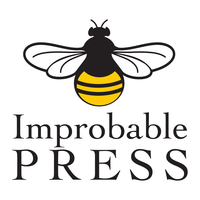
I read all kinds of interesting stuff. How moths drink the tears of sleeping birds. That flour is explosive. That Marie Curie's belongings will be radioactive for 500 years. And there are probably at least 500 billion galaxies.
These are little facts that are a delight just for knowing, or for knowing so you can add them to a story and give it a wee bit of crunch.
Crunch?
Crunchy facts are those chewy, spikey, textural bits of minutiae that give your story complexity. So says novelist and songwriter Narrelle M Harris, who made up this tasty term.
Crunchy facts are those details we come across that make us spin like over-excited tops, thinking "GAH! This is so cool, I have to put it in a story!" (Me, I'm talking about me.) They're little or big things like:
- HOLY CRAP! Goat milk and chicken meat can both kill you if…the goats have eaten mountain saffron or the hens have supped on mountain laurel. (Is this now your secondhand way to bump off a character?)
- WHAAAA? Human pee can be blue if you take certain supplements? Or purple if your kidneys are out of whack? Is your particularly observant sleuth going to solve the case (and maybe repel their partner) with that as a clue?
- WARM. When wounded British soldiers were brought to a base hospital during WWI, one of the first things the nurses did was give them a cup of tea. I put this in my second book of Sherlock Holmes stories, to give the story warmth, and allow two characters to connect and change each other's lives.
- WHOA. Horseshoe crabs have baby blue blood, and an extract in it is used to help ensure the safety of human vaccines and other medicines. (To be honest I've no idea how to use this crunchy fact but I bet you do — tell me below?)
So! Here we'll sometimes have a few hundred words of crunchy science, culture, or history facts coming as I find 'em. I would love, love, LOVE if you shared yours in the comments please (which are moderated because of the plague of spam bots).
Next time: why your alien character always gives birth to four identical babies
References:
You can pee a rainbow • Deadly Doses: a writer's guide to poisons • Sherlock Holmes and John Watson: The Night They Met • The Many Ways Horseshoe Crab Blood Will Amaze You

And scorpions glow blue-green under UV light. Scientists think it’s to turn themselves into one big eye, since they see better by blue-green light. I see an idea for aliens here…
It is possible to menstruate places such as your nose. True. Tabor’s Cyclopedic Medical Dictionary says: menstruation through other than the normal outlet, such as the nose. I’m using it in the novel I’m working on — I just couldn’t resist.
I win a lot at Trivial Pursuit. I may be poor, but I’m rich in ennui! As I create, these crunches make my brain biceps throb. Edith Wharton, the grand and wealthy matron of “Age of Innocence” wrote a short story about a woman being sexually molested by her father in a hotel. It began a critical “furor” about whether she’d been factually molested as a youth by her “real” father. One thing was certain, she began sleeping in another room with her husband, Mr. Wharton, and she hung-out with Henry James, who enjoyed handsome young men quite a lot in his day.
Armadillos are also one of the few animals that can carry leprosy.
I really wanted to share this one though (not sure if it’s crunchy or just funny):
When Sally Ride was going to go up on a 6-day mission as the first woman astronaut, NASA was afraid she might get her period and they needed to stock the shuttle, so they asked her if 100 tampons would be enough. For a 6-day mission.
JAMES! The voice of Jupiter and someone hearing it on a lonely country road is SO a story. It’s a story. A story to be written!